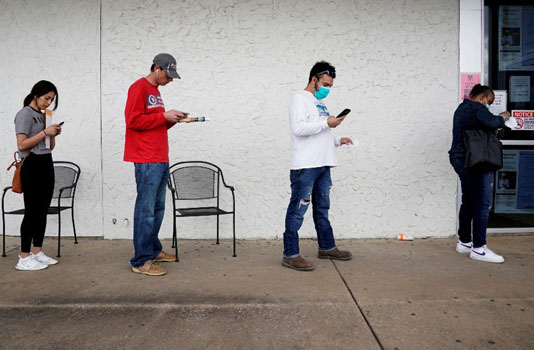WASHINGTON, May 15, 2020 (BSS/AFP) – Over a third of US workers who lost jobs or saw their hours reduced because of the coronavirus pandemic will have trouble paying their bills and nearly half do not have an extra $400 for an emergency, according to a survey released Thursday.
The Federal Reserve said many households were experiencing precarious finances prior to the crisis, and that has been exacerbated by the economic shutdowns, which have hit those in the lower income bracket the hardest.
Nearly half of those surveyed last month reported finding it difficult to get by or were just getting by, according to the survey, conducted April 3-6, which was after Congress approved a massive $2 trillion aid package but before checks had been sent to households.
“The survey data show that early in the public health crisis, a larger fraction of Americans were facing financial hardship than in the fall of 2019,” Fed Governor Michelle Bowman said in a statement.
But the survey also was before the impact of the full month of business lockdowns in April to ward off a disease that has now killed more than 84,000 people in the United States.
The report showed 13 percent of people working in February had lost their jobs or were furloughed, while 6 percent saw their hours reduced or took unpaid leave.
For those earning less than $40,000, 39 percent reported a job loss, the Fed said, noting that those with at least a college education were much more likely to hold jobs that allowed them to work from home.
Nearly two-thirds of those who stopped working or had their hours cut say they would have trouble paying their bills in April, while 46 percent did not have cash on hand to face a $400 emergency, the Fed said.
“This highlights the precarious financial situation that some families were in prior to the COVID-19 pandemic,” the report said.
The good news was that nearly all of the workers furloughed in March expected to return to their jobs, although more than three-fourths did not know when, the survey showed.



